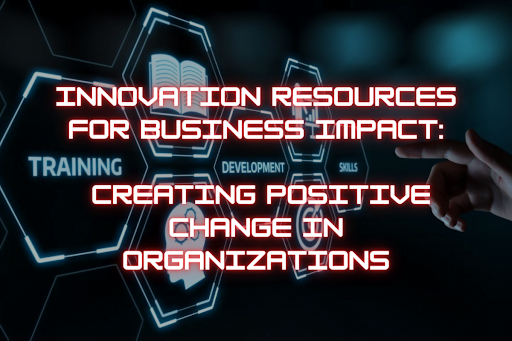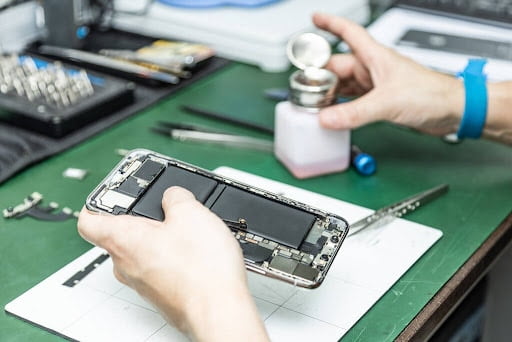The most significant advantages of mobile learning and how it transforms education, engages learners, and improves the outcome even when students are handling highly complex areas of study.
Mobile devices have revolutionized our daily lives in this age of digitalization as they are now crucial for communication, accessing information, and entertainment. Yet, their influence exceeds personal convenience. M-learning, also called mobile learning, has become a potent instrument in changing education, involving pupils, and enhancing academic results. Using smartphones and tablets allows mobile learning to offer specific prospects for providing educational content, personalized learning experiences, and collaborative platforms. These things surpass the traditional boundaries of classrooms. By detailing ten ways that mobile learning empowers students while transforming the educational landscape into a more inclusive and efficient space, this article explores how to reshape education with technology. The way we learn is being transformed by mobile learning, making education more accessible to everyone. The transformation of the present education system is achievable via mobile technology that provides students with flexible accessibility to educational content and tailored interaction. Acquiring skills and knowledge essential for the 21st century is possible through it.

Access to Learning Resources
The availability of educational resources has been significantly enhanced through mobile learning, allowing students ample opportunity to improve their education. Mobile devices allow students to effortlessly access a broad range of e-books, educational apps, online courses, and multimedia content. The confinement of physical libraries and the limited availability of printed materials is no longer a concern. Thanks to the convenience provided by their smartphones or tablets, students can effortlessly explore a diverse range of knowledge encompassing academic textbooks and interactive learning modules with just a few taps. Additionally, the suitability of mobile instruction empowers scholars to retrieve these resources anytime and anyplace. No matter where someone may be at home, on the go via public transit like buses and trains, or even out of range from civilization – they will always be able to access them. Education can now overcome its traditional barriers thanks to newfound accessibility. Regardless of their geographic background, students are ensured equitable access to quality learning materials. More importantly, students can seek academic help from reputable custom writing companies like Peachy Essay.
Personalized Learning
Mobile learning has initiated a fresh epoch of individualized learning experiences. Customizing the educational journey based on individual needs empowers students. Self-paced learning is possible for students through mobile applications, where they can choose content aligned with their preferences and areas of focus. Analyzing students’ progress, strengths, and areas for improvement through artificial intelligence algorithms is how adaptive learning platforms further enhance personalization. These platforms can provide targeted recommendations for further study, practice exercises, and additional resources which cater to specific learning gaps by adapting the learning path dynamically. The customized learning approach enhances student involvement and enthusiasm while optimizing the efficiency and effectiveness of educational outcomes. Every student can thrive and fulfill their complete potential. Mobile learning enables personalized education to thrive. Its focus on empowering learners with tools and resources results in a generation that excels on their unique educational paths.
Interactive Learning
Mobile devices have exposed an array of interactive learning possibilities. To create engaging and immersive educational experiences, they utilize touch screens, multimedia capabilities, and sensors. Mobile apps and platforms enable students to engage in gamified learning, integrating game elements into educational activities to boost motivation and engagement. Virtual environments provided by simulations allow students to practice skills and explore complex concepts safely. Virtual reality application implementation can be facilitated by using mobile devices. The interactive scenarios in these applications help students understand subjects like history, science, and vocational training. By allowing students to interact with content, manipulate objects and solve problems, these interactive learning experiences tap into their natural curiosity. Retention and understanding levels are higher due to this outcome. Educators can turn learning into an exciting and effective journey by using the interactive features of mobile devices.
Collaborative Learning
Collaborating becomes easier for students and educators thanks to mobile learning. Group discussions, resource sharing, and project collaboration can be facilitated by using collaborative platforms and communication tools for students. Mobile learning has transformed collaborative learning, promoting teamwork and critical thinking while fostering a sense of community. With its assistance, collaboration among students and educators becomes smooth. Mobile devices facilitate the active participation of students in group discussions, forums, and virtual classrooms regardless of where they are located physically. Collaborative platforms and communication tools allow students to use real-time resource-sharing, idea-generation, and project collaboration. Enabling students to engage in dynamic and interactive teamwork is one of the benefits of these platforms, which offer features like file sharing, collaborative document editing, and instant messaging. When collaborating with their peers, students build crucial 21st-century skills, including critical thinking, problem-solving, and effective communication. Their goals include acquiring the ability to appreciate diverse points of view, enhancing group knowledge by contributing positively, and refining teamwork skills.
Communication skills.
A revolution in delivering educational content has occurred by adopting a bite-sized approach to mobile learning. Students using their mobile devices can access learning modules or microlearning materials that are deliberately made easy to digest. Using these bite-sized chunks, students can learn more efficiently and manageably. Whether watching short video tutorials or taking quizzes, or reading concise summaries, mobile learning allows for flexible studying while on the go. Busy schedules need not hinder seamless learning integration. Easily reviewing and revisiting specific concepts for reinforcement allows students to enhance their knowledge retention while promoting active learning with this approach. Bite-sized learning in mobile education fosters self-paced studying, enabling learners to advance at their tempo and revisit material when required.
A revolutionary period in education has been inaugurated by mobile learning, which surpasses previous limits on time and space. Its impact on education is undoubtedly transformative. Providing access to a vast array of learning resources empowers students. Personalized learning experiences, along with collaboration, result in interactive and engaging environments being promoted. Teachers can cater to diverse student needs and learning styles by using mobile devices to adapt teaching techniques. This establishes that every student earns a distinctly personalized learning experience. Integrating mobile learning offers avenues for practical use cases while encouraging language diversity and supporting teacher development. Remote and distance learning become possible when traditional methods are not feasible. Addressing potential challenges is crucial as we embrace the advantages of mobile learning. Ensuring equitable access for all students, like addressing the digital divide. Mobile learning has immense transformative potential that can be harnessed by utilizing innovative educational technologies and leveraging these devices’ power. Improved learning outcomes are achievable through student engagement. Education can potentially become more accessible, engaging, and empowering for learners worldwide with the help of mobile learning through continuous advancements and evolving pedagogical approaches. Revolutionizing the way we learn could make education more inclusive.




